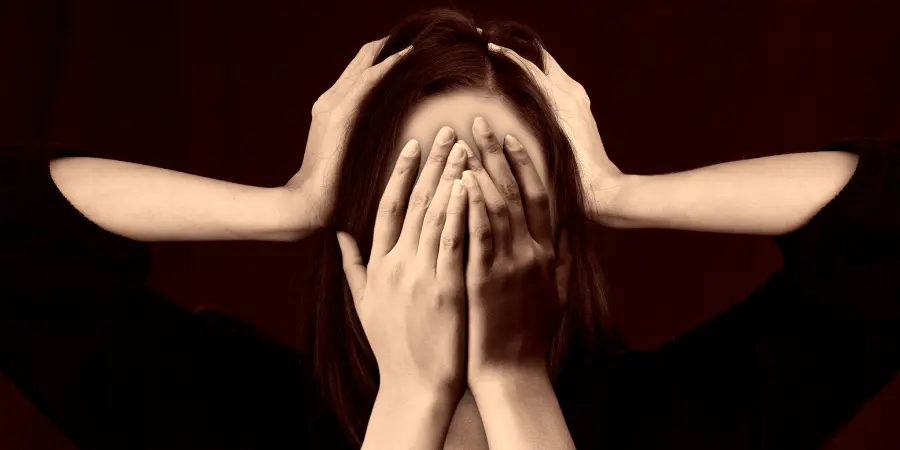Last Updated:
August 13th, 2025
Schizophrenia and Addiction | Symptoms and Treatment
Schizophrenia and addiction is a common dual diagnosis. In fact, modern studies have shown that 50% of people suffering from schizophrenia battle with alcohol or drug addiction. This type of co-occurring disorder can be particularly traumatic for all involved, given that substance abuse by itself has the power to ruin lives, but combined with schizophrenia, it can radically impair people’s ability to live a high quality of life. Therefore, it’s imperative that those with schizophrenia and substance addiction seek treatment as soon as possible. We understand that substance abuse cannot directly cause schizophrenia, but it can certainly act as a trigger. Likewise, excessive substance abuse can exacerbate the frequency and severity of schizophrenic episodes. So, in order to successfully treat addiction, it’s imperative we find a way to better manage symptoms of schizophrenia too.

What is schizophrenia?
Schizophrenia is a severe neurological disorder that results in discord between an individual’s awareness and the world around them. Schizophrenia interferes with cognitive thought processes, behaviours, and communication. To put it simply, schizophrenia alters a person’s sense of reality so much that it can impair their ability to work, build and maintain relationships as well as think and behave rationally. The ramifications of untreated schizophrenia can sadly lead to poverty, homelessness, hospitalisation, incarceration, and suicide for those suffering.
Schizophrenia and addiction: The signs to look out for
If you think someone is suffering from schizophrenia and addiction, we can look at the key signs and symptoms below.
If you are worrying that you or a loved one has depression and addiction, read the following statements. If some or all resonate with you, it could indicate signs of dual diagnosis.
I use substances (or partake in specific behaviours) to cope with feelings of worthlessness.
- Thinking about my next “fix” gets me through the day.
- I have withdrawn from hobbies and passions which I used to enjoy
- I struggle to concentrate at work or school.
- I have withdrawn from my family and friends.
- I depend on a particular behaviour to make me feel better (this could be substance abuse like alcohol or drugs or behavioural addiction)
- I try to conceal the source of my addiction from my loved ones. For example, I hide out of sight of bottles, bongs, drugs, zip-lock bags, receipts, and pill packets.
- I struggle to sleep properly.
The impact of addiction on schizophrenia
Addiction can exacerbate the common symptoms of schizophrenia; if somebody with schizophrenia is experiencing stronger or more frequent episodes of any of the following, it could be a sign of substance abuse:
Psychosis…
Acute psychosis (when a person’s thoughts become so impaired, that they seem detached from reality) can feel alarming for those witnessing. Some examples could be drastic changes in behaviour; a person may claim they are being watched or chased and may start shouting or causing alarm. This is particularly worrying if a person is intoxicated at the same time, people may assume the person is behaving in a drunk and disorderly manner and thus they could become incarcerated, without anyone understanding that they are suffering from schizophrenia.

Delusional belief…
An example of delusional belief is when a person is convinced that they are being chased or plotted against by those close to them, or that there are secret messages on street signs or on televisions directly for them. When a person becomes addicted to a mind-altering substance, it can aggravate such ideas further and create strong paranoia.
Hallucinations…
A person may claim to see, hear, taste, touch, or smell things that don’t exist. An example of this is when a person claims to hear voices that aren’t there. Mind-altering substances can not only intensify such visions but can prolong the episodes.
Disjointed thoughts…
People experiencing schizophrenia frequently struggle to process their thoughts and conversations. This can make their speech seem jumbled as a person’s thoughts get meshed with their words, thereby making it hard for others to understand conversations. If someone is on a comedown from substances, such thoughts can become even more disjointed, due to unpleasant withdrawal symptoms.
How are schizophrenia and addiction linked?
There are various hereditary and environmental factors that influence co-occurring disorders such as schizophrenia and addiction. Everybody is different and therefore, everybody will have their own source of schizophrenia and reasons for developing addiction, but some of the most common ones are listed below:
Some addictive substances could trigger schizophrenia …
Whilst substance use doesn’t directly cause schizophrenia, it’s relevant to add that certain mind-altering substances such as marijuana can trigger side effects that mimic schizophrenia. Additionally, research has shown that the more potent the marijuana, the higher risk of psychosis (symptoms of schizophrenia including hallucinations and delusions) in those susceptible.
Some people are pre-disposed to schizophrenia…
Another point to consider is that some people may be predisposed to schizophrenia via genetics. If someone doesn’t suffer from schizophrenia themselves but they have a parent who does, and this person develops a cocaine addiction, amphetamine addiction, or cannabis addiction, such substances can eventually aggravate symptoms of psychosis. Therefore, when a pre-disposed schizophrenic person becomes dependent on a mind-altering substance, they’re increasing their chances of developing schizophrenia.
Chronic stress can cause both schizophrenia and addiction…
Stress and trauma could be the underlying factor in co-occurring disorders such as addiction and schizophrenia. If a person is already vulnerable to schizophrenia (possibly due to genetic factors), experiencing high levels of stress can bring about symptoms of schizophrenia. Such stressors may arise from traumatic life events, such as:
- Divorce
- Bereavement
- Physical, sexual, and emotional abuse
- Losing your job
- PTSD from witnessing a disturbing event such as a car accident
- Bankruptcy
- Losing your home

Furthermore, it’s no surprise that addiction also develops out of stress. Therefore, it’s possible that a person has become reliant on a substance like alcohol or drugs as a way of coping with underlying trauma or to mentally escape from difficult situations. Furthermore, given that schizophrenia can induce distressing thoughts and feelings, people may feel compelled to use substances as a way of seeking relief from the effects of schizophrenia.
Substance abuse may result from self-medication…
People with mental health disorders may gravitate toward drugs like marijuana to alleviate and soften uncomfortable symptoms of schizophrenia. Marijuana, for example, is known to invoke relaxation in those who consume it and it can initially appear to relieve any stress or upset in those with schizophrenia. However, marijuana is also known to increase paranoia and anxiety (which can last for days at a time), thereby aggravating symptoms of schizophrenia in the long term.
Furthermore, traditional antipsychotic drugs work very well in reducing the symptoms of schizophrenia such as psychosis and hallucinations. This is because medications for schizophrenia effectively work by blocking dopamine receptors in the brain. However, such medications can worsen some other schizophrenic symptoms resulting in bouts of depression for those suffering. Thereby, people may become addicted to dopamine-inducing substances like cocaine to temporarily escape these feelings.
How to effectively treat both schizophrenia and addiction
Private rehab centres offer specially designed treatment and services for people who wish to recover from alcohol and drug addiction. Since schizophrenia and addiction is a co-occurring disorder, clients will require a highly personalised treatment plan. Integrated dual diagnosis treatment is the best for schizophrenia and addiction, where the patient receives effective care for addiction whilst additional therapy treatments can help them to manage schizophrenia.
What needs to be treated first – schizophrenia or addiction?
Many rehabilitation clinics, including Primrose Lodge, primarily specialise in addiction recovery. Therefore, it’s essential your addiction is the primary disorder (the condition most in need of treatment). Schizophrenia will need to be the secondary disorder, this means you need to have a full medical diagnosis upon entering rehab and if necessary, medications prescribed by your doctor. All our therapists are highly skilled in treating co-occurring disorders, so they will be able to help you manage schizophrenia and offer you additional coping mechanisms alongside addiction counselling. If you suspect you have (or a loved one has) schizophrenia and addiction, it’s important you see your GP to be diagnosed and treated for schizophrenia first before seeking private addiction treatment. Although we can help people to cope with schizophrenia, we cannot treat it. It’s important you have the appropriate medications or resources at hand to cope with any existing co-occurring disorders upon admission to addiction rehab.
How Primrose Lodge can help with dual diagnosis
At Primrose Lodge, we will help you rid traces of addictive substances from your body via a specialised detox before being invited to attend various psychotherapy treatments bespoke to treating dual-diagnosis. Such innovative therapies include cognitive behavioural therapy, which will help you address negative thoughts and compulsions that may coerce you towards substance addiction. Plus, you’ll have one-on-one counselling that can provide you with useful coping mechanisms to avoid future relapse. In addition, we recognise that dual diagnosis treatment should encompass your physical, mental, and emotional health too. Therefore, our healthcare professionals incorporate holistic therapies to treat your overall well-being. Such treatments can also help you to manage the symptoms of schizophrenia which can help to reduce the severity and frequency of episodes.
- Individual counselling
- Family/Group Therapy
- 12-step Therapy
- Meditation
- Gong bath
- Yoga
- Art therapy
- Mindfulness
- Self-esteem and assertiveness workshops

Start your recovery today
At Primrose Lodge we will do our best to help you manage your schizophrenia, so you are better equipped to kick substance addiction for good. You will be welcomed to stay in a comfortable and safe environment where you can get the care and attention you need to combat both addiction and schizophrenia for good. The sooner we treat both, the greater chance of long-term recovery, so don’t delay treatment anymore. Give us a call today and one of our helpful advisors will help you get one step closer to the care you deserve.


